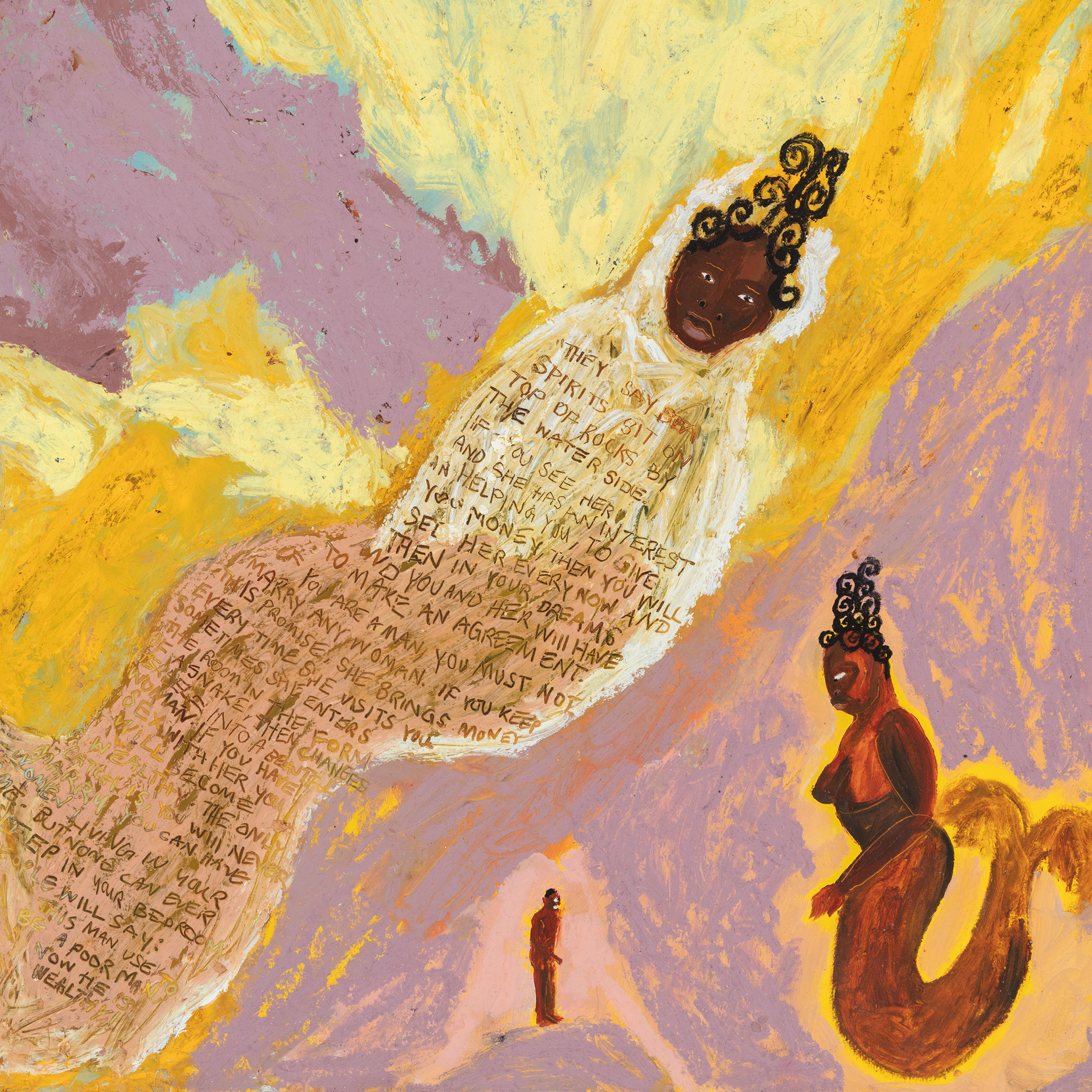Cape Town
17 May - 21 June 2025STAGE
Jemila Isa

Sea Spirit 2, 2025, Oil on paper
STEVENSON is pleased to present Held by invisible hands by Jemila Isa, the seventh in our series of STAGE exhibitions.
For her first exhibition on the continent, the London-based artist presents delicate paintings meditating on fertility, grief and Nigerian spirituality. The title of the exhibition metaphorises the ways in which spiritual customs – through deities, belief systems and the people who keep those practices alive – shape and hold lives in sometimes haunting ways.
The artist, who is of British-Nigerian descent, makes reference to a custom practiced in Ebonyi State, a small community in the country's South East region. Here, girls and young women are traditionally forced to carry children by 'dead men'. According to this practice, the children are, by customary laws and beliefs, 'fathered' by the deceased. In reality, the fathers of these children are living men who do not raise or have claim to these children. The women are often compelled to participate by the 'deceased's' family, but most strikingly by the belief that the spiritual deities worshipped by the community will haunt and pose a threat to their lives if they resist. In some works, the spirits of these 'dead men' sorrowfully watch over the women that they loved in 'life'. Set in an imaginary village, inspired by these histories, Isa depicts this practice and others.
Held by invisible hands considers fertility and death as inseparable partners. As Isa animates the belief systems of Ebonyi State, she similarly interprets the figure of Mami Wata. Mami Wata is a water spirit, reproduced in African and Caribbean mythologies, who is regarded as a symbol of fertility and guardian of women and children. The deity, often depicted as a mermaid in folklore, appears across the scenes of Isa's imaginary village, looking onto moments of intimacy.
In these paintings, women are consistently rendered with startled eyes, their expressions described by the artist as 'vacant, apathetic and embodying a quiet urgency.' For Isa, women are at the centre of her spiritual questionings. Further elaborating on the way these women bear witness, the artist writes:
These gazes speak to the invisible constraints imposed by rigid beliefs, echoing the internal conflicts of women denied agency, expression or alternatives.
For Isa, it is women who make tangible what is unseen, and who are bearers of spiritual practices. In works depicting twin wooden sculptures, Isa references the tradition of the Ibeji twins whereby mothers who have lost one or both twins carve and carry these sculptures with them. Intended to bring comfort and assuage their grief, the sculptures are believed to represent the deceased family members, as they are spiritually still present. Isa continues:
My practice is as much about the unseen as it is about the tangible – the invisible hands of tradition, the presence of ancestral spirits, the silence of women shaped by expectation. In my work, I challenge viewers to consider what is inherited, what is imposed and what might be reclaimed.
Isa shows concurrently with Guy Tillim. The exhibition opens Saturday 17 May, 10am to 1pm.
Earlier iterations of STAGE, our platform for younger, unrepresented artists, have featured Mahube Diseko, Farhana Jacobs, Thato Toeba, Lebogang Mogul Mabusela, Mack Magagane and Khanyisile Mawhayi.

